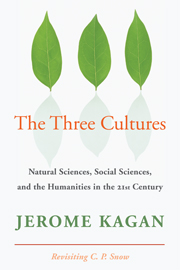4 - Social Sceinces 2
Published online by Cambridge University Press: 07 August 2009
Summary
Political science is a relatively recent addition to university departments, attracting scholars whose interests range from philosophical theorizing to surveys of public opinion. However, their shared aim is to understand the sources of, and constraints on, power relationships among institutions, social groups, and nation states, where power is defined as the ability to force or persuade others to accept beliefs or practice behaviors they would not otherwise adopt.
The discipline contains three types of scholars. The largest group conceives its mission to be the conduct of ethically neutral empirical science. A second group, which also tries to avoid taking an ethical position, relies on the formal models of rational choice theory to describe power relationships. The members of both groups, who assume that their task is to discover how societies might create an optimal balance between each person's liberty and dignity, resemble the Spanish Jews who during the Inquisition converted to Catholicism but behind closed doors and shuttered windows lit Sabbath candles. The third group remains loyal to the ethical concerns of ancient and Enlightenment philosophers because its members understand the impossibility of cleansing power relations of a moral evaluation. One cannot describe the Third Reich in ethically neutral language as “a society that chose to dominate one sector of its population in the service of restoring national confidence” in order to maintain the value neutral posture of the natural sciences.
- Type
- Chapter
- Information
- The Three CulturesNatural Sciences, Social Sciences, and the Humanities in the 21st Century, pp. 168 - 221Publisher: Cambridge University PressPrint publication year: 2009

